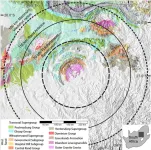(Press-News.org)
Mammography screening supported by artificial intelligence (AI) is a safe alternative to today’s conventional double reading by radiologists and can reduce heavy workloads for doctors. This has now been shown in an interim analysis of a prospective, randomised controlled trial, which addressed the clinical safety of using AI in mammography screening. The trial, led by researchers from Lund University in Sweden, has been published in The Lancet Oncology.
Each year around one million women in Sweden are called to mammography screening. Each screening examination is reviewed by two breast radiologists to ensure a high sensitivity, so called double reading. There is however a workforce shortage of breast radiologists, in Sweden and elsewhere, which can put the screening service at risk. Lately, the potential of AI to support mammography screening has attracted much attention, but how this is to be optimally conducted and what the clinical consequences will be, remains unclear.
To know with certainty what happens when radiologists work with the support of AI requires studies in which women are randomly allocated to AI-supported screening or to standard screening. The Mammography Screening with Artificial Intelligence (MASAI) trial is the first randomised controlled trial evaluating the effect of AI-supported screening.
“In our trial, we used AI to identify screening examinations with a high risk of breast cancer, which underwent double reading by radiologists. The remaining examinations were classified as low risk and were read only by one radiologist. In the screen reading, radiologists used AI as detection support, in which it highlighted suspicious findings on the images”, says Kristina Lång, researcher and associate professor in diagnostic radiology at Lund University and consultant at Skåne University Hospital, who led the study.
The 80,033 women included in the safety analysis were randomly allocated into two groups: 40,003 women in the intervention group that underwent AI-supported screening and 40,030 in the control group that underwent standard double reading without AI support.
“We found that using AI resulted in the detection of 20 % (41) more cancers compared with standard screening, without affecting false positives. A false positive in screening occurs when a woman is recalled but cleared of suspicion of cancer after workup,” says Kristina Lång.
At the same time, the screen-reading workload for radiologists was reduced by 44 %. The number of screen readings with AI-supported screening was 46,345 compared with 83,231 with standard screening.
The time aspect is important. Kristina Lång explains that, on average, a radiologist reads 50 screening examinations per hour. The researchers estimated that it took approximately five months less of a radiologist’s time to read the roughly 40,000 screening examinations in the AI group.
“The study was conducted on a single site in a Swedish setting. We need to see whether these promising results hold up under other conditions, for example with other radiologists or other AI algorithms. There may be other ways to use AI in mammography screening, but these should preferably also need to be investigated in a prospective setting,” states Kristina Lång.
A total of 100,000 women have now been enrolled in the MASAI trial. The research team’s next step is to investigate which cancer types that were detected with and without AI support. The primary endpoint of the trial is interval-cancer rate. An interval cancer is a cancer diagnosed between screenings and generally have poorer prognosis than screen-detected cancers. The interval-cancer rate will be assessed after the 100,000 women in the trial have had at least a two-year follow up.
“Screening is complex. The balance between benefit and harm must always be taken into account. Just because a screening method finds more cancers does not necessarily mean it’s a better method. What’s important is to find a method that can identify clinically significant cancers at an early stage. However, this has to be balanced with the harm of false positives and the overdiagnosis of indolent cancers. The results from our first analysis shows that AI-supported screening is safe since the cancer detection rate did not decline despite a substantial reduction in the screen-reading workload. The planned analysis of interval cancers will show whether AI-supported screening also leads to a more accurate and effective screening programme,” says Kristina Lång.
END
Decades of research have left knowledge gaps about cells that regulate the immune system: Purdue and NIH
Four decades of research have produced a vast pool of knowledge about regulatory T cells, a subset of our immune cells. Even so, scientists at Purdue University and the National Institutes of Health have identified 14 understudied T-reg proteins that merit increased attention for the molecular roles they play in disease onset.
“Our lab studies the exact molecular mechanism underlying autoimmunity, infection and cancer,” said Majid Kazemian, associate professor of biochemistry in the College of Agriculture ...
About The Editorial: In this editorial, JAMA and JAMA Network journals join journals worldwide to call on health professionals to warn the public about the major danger to health and essential life support systems posed by the threat of nuclear war and urge action to prevent use of nuclear weapons.
Authors: Chris Zielinski, of the University of Winchester, U.K., and World Association of Medical Editors, is the corresponding author.
To access the embargoed study: Visit our For The Media website at this ...
ATLANTA, August 1, 2023 – A new study from researchers at the American Cancer Society (ACS) found monthly adult cancer diagnoses decreased by half in April 2020 during the COVID-19 pandemic in the United States. The largest decrease was for stage I cancers, resulting in a higher proportion of late-stage diagnoses. The study is the most comprehensive research to date about the effects of the first year of the pandemic on cancer diagnoses and stage in the nation. The paper was published today in the ...
Findings from the first-ever prospective trial including a randomized pathway comparing surgery to non-surgical treatment of malignant bowel obstruction (MBO) provide important evidence to help inform clinical decision-making in managing this frequent complication in patients with advanced cancer.
Results include data on clinical outcomes and patient quality of life and are being reported in The Lancet Gastroenterology & Hepatology.
The S1316 study, a hybrid design trial that included a randomized component, was led by the SWOG Cancer Research Network, a clinical trials group funded by the National Cancer Institute ...
Peer-reviewed / Randomised trial / People
Planned interim safety analysis of the first randomised trial investigating the use of AI in a national breast cancer screening programme underscores the potential of AI to make mammography screening more accurate and efficient.
Interim findings from a cohort of over 80,000 women in Sweden reveal AI-supported screening detected 20% more cancers compared with the routine double reading of mammograms by two breast radiologists.
The use of AI did not increase false positives (when a mammogram ...
Royal Ontario Museum (ROM) announces the oldest swimming jellyfish in the fossil record with the newly named Burgessomedusa phasmiformis. These findings are announced in the journal Proceedings of the Royal Society B.
Jellyfish belong to medusozoans, or animals producing medusae, and include today’s box jellies, hydroids, stalked jellyfish and true jellyfish. Medusozoans are part of one of the oldest groups of animals to have existed, called Cnidaria, a group which also includes ...
This press release is available online at: https://news.agu.org/press-release/earths-most-ancient-impact-craters-are-disappearing/
AGU press contact:
Rebecca Dzombak, news@agu.org (UTC-4 hours)
Contact information for the researchers:
Matthew S. Huber, University of the Western Cape, mhuber@uwc.ac.za (UTC+2 hours)
WASHINGTON — Earth’s oldest craters could give scientists critical information about the structure of the early Earth and the composition of bodies in the solar system as well as help to interpret crater records on other ...
The silver rice rat, an endangered species endemic to the Florida Keys, makes its home as close to the shoreline as possible for easy access to its low-tide marine species diet.
It is this proximity to the water that prompted a team of scientists at the University of Florida to examine the rats’ movement in correlation with historical tidal data over 17 years. The sea level rose 0.142 meters between 2004 and 2021, and the researchers also found that the rats moved to higher ground. In fact, the rats ...
By Adam Russell
A new research study shows pecans may help prevent obesity and reduce inflammation. (Texas A&M AgriLife photo by Laura McKenzie)
“Obesity and diabetes numbers are increasing in modern society worldwide, and the trend in high fat diet consumption is one of the main reasons besides lifestyle and genetic predisposition,” said Luis Cisneros-Zevallos, Ph.D., professor of horticulture and food science in the Department of Horticultural Sciences in the Texas A&M College of Agriculture and ...
WASHINGTON (August 1, 2023)— New analysis from researchers at the George Washington University links lead exposure either in utero or during childhood with an increased risk of engaging in criminal behavior in adulthood. While prior research has found an association between lead exposure and criminal behavior at the aggregated population level, this is the first review to bring together the existing data at the individual-level of exposure and effects.
The first systematic review of available studies that address links between individual lead exposure and crime, or other antisocial behaviors, the research team’s analysis included 17 ...




